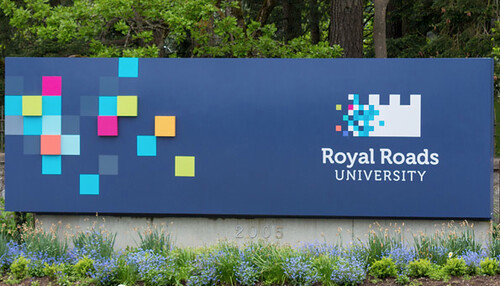Victoria’s Royal Roads University to Build New Software for Canadian Communities
 Communities are constantly evolving and changing, trying to keep up with the rate at which society and technology is developing. But all this progress has an impact which we cannot always foresee when setting out to accomplish the next big goal.
Communities are constantly evolving and changing, trying to keep up with the rate at which society and technology is developing. But all this progress has an impact which we cannot always foresee when setting out to accomplish the next big goal.
Sometimes the outcome has the positive effects we hope for and sometimes we’re also confronted with negative consequences that were not expected or taken into account initially.
Take, for instance, the opportunity to develop a new boardwalk filled with shops and eateries on a shoreline. How can municipalities become informed enough to know whether the economic benefit of such a project is worth the potential environmental and community impact? How will this boardwalk affect residents of the area and wildlife that may inhabit the site? How much economic benefit will all of the new stores and restaurant really bring to the community? And how many resources will need to be added to manage the energy, water, and waste that this project will consume or produce?
To attempt to solve these types of conundrums, a researcher at Royal Roads University in Victoria, BC has been awarded a $102,300 grant. The grant will come from the John R. Evans Leaders Fund which is part of the Canadian Foundation for Innovation (CFI). It will be used to develop new software that can help municipalities and communities across Canada make better decisions when it comes to planning future developments. The new computer model will take into account land, water, and energy use data, as well as employment and economic output statistics. Combining and analyzing these variables in a simulation will allow decision-makers to better weigh the benefits and costs of any new project within a community.
The grant will go to Ann Dale, the Canada Research Chair in Sustainable Community Development at Royal Roads. Leading a wide variety of initiatives such as MC3, a research program that studies BC communities and their abilities to adapt to climate change, the Canadian Consortium for Sustainable Development Research, and cofounding institutions such as the National Round Table on the Environment and the Economy, Ms. Dale is internationally recognized as a key researcher in the field of community sustainability.
She will be working with Ottawa-based whatIf? Technologies Inc. and the Sustainability Solutions Group (SSG) to develop and test the new model called Resource +. whatIf? Technologies is a Canadian software technology and consulting service that focuses on simulations and systems models.
The models they develop integrate strategic planning and analyze different scenarios while also looking at risks involved. SSG, a Canadian workers cooperative that is specifically designed to look at societal issues and create solutions using a holistic sustainability approach, has contributed to various sustainability projects across the country. Their adaptive management approach gives organizations and institutions the flexibility to change with the major societal issues we face today, such as climate change, inequalities, ecosystem decline, and more.
This proposed model will be the first of its kind to function at the community level and the prototype will be developed in cooperation with four communities across the country located in BC, Ontario, and the Maritimes which are yet to be determined. The project will be hosted at Royal Roads University.
Resource + will continue to build on already existing climate change mitigation models. By looking at economic input and output for a community faced with a new investment opportunity, as well as taking into account potential health and environmental ramifications, understanding the economic benefits versus the cost to a community will be much easier. The ability to compare traditional ways of development, such as exploitation of resources, with new methods of development that are more sustainable, such as renewable energy sources, will help communities make informed choices and be better equipped to make important decisions that can lead toward a more sustainable future and balanced use of resources.











